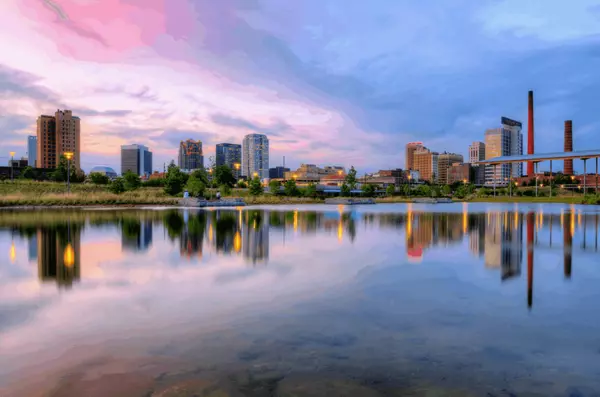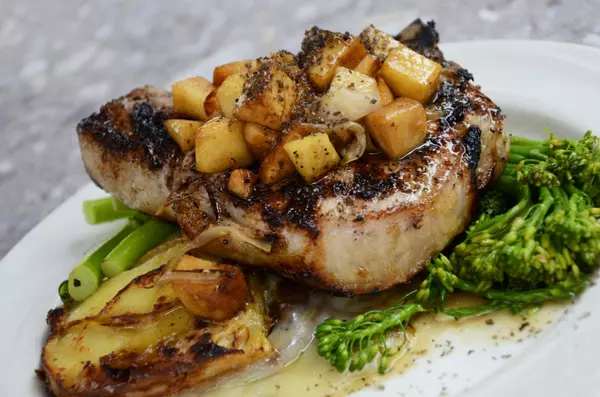Food for Thought: How Birmingham's Culinary Renaissance is Changing Neighborhoods

Birmingham, Alabama, once known primarily for its industrial past, has been cooking up a storm in recent years. The city's culinary scene has undergone a remarkable transformation, earning it a place on the map as a foodie destination. But this gastronomic revolution is doing more than just satisfying taste buds—it's reshaping neighborhoods and influencing real estate trends across the Magic City.
The Ingredients of Change
From Steel to Saucepans
Birmingham's transition from a steel town to a culinary hotspot didn't happen overnight. The seeds were planted years ago with local chefs like Frank Stitt, whose Highlands Bar and Grill put Birmingham on the culinary map. Today, a new generation of chefs and restaurateurs are building on this foundation, infusing the city with diverse flavors and innovative concepts.
The Rise of Food Districts
As Birmingham's food scene has grown, distinct culinary districts have emerged, each with its own flavor profile:
- Avondale: Once an industrial area, now home to breweries, food trucks, and eclectic eateries.
- Lakeview: A burgeoning entertainment district with a mix of upscale and casual dining options.
- Five Points South: A long-standing dining destination that continues to evolve and attract new restaurants.
- Pepper Place: From its famous farmer's market to surrounding restaurants, it's become a haven for food lovers.
How Food is Transforming Neighborhoods
Property Values on the Rise
The influx of popular restaurants and bars has had a noticeable impact on property values in these areas. For instance:
- In Avondale, median home prices have increased by approximately 30% since the neighborhood's culinary boom began.
- Commercial real estate in Lakeview has seen increased demand, with rents rising as new eateries seek prime locations.
Residential Development Follows Food
Where good food goes, people follow. We're seeing increased interest in residential properties near these culinary hotspots:
- Loft conversions in Avondale and Pepper Place are attracting young professionals who want to live near the action.
- New apartment complexes are sprouting up in Five Points South, catering to those who crave an urban lifestyle with great dining options at their doorstep.
Commercial Real Estate Boom
The culinary renaissance isn't just affecting residential real estate. Commercial properties are also feeling the impact:
- Vacant storefronts in these food districts are being snapped up quickly, often by restaurateurs or food-related businesses.
- Developers are more inclined to include restaurant spaces in mixed-use projects, recognizing the draw of good food options.
Neighborhood Spotlights
Avondale: From Industrial to Edible
Once overlooked, Avondale has become one of Birmingham's most vibrant neighborhoods. Anchored by Avondale Brewing Company and surrounded by popular eateries like Saw's Soul Kitchen and Post Office Pies, the area has seen a remarkable transformation.
Real Estate Impact: Housing demand in Avondale has surged, with renovated bungalows and new construction townhomes attracting buyers who want to be part of this foodie haven.
Pepper Place: A Taste of Local Flavor
Centered around the popular Pepper Place Saturday Market, this district has blossomed into a full-fledged culinary destination. With restaurants like OvenBird and Hot and Hot Fish Club nearby, it's a magnet for food enthusiasts.
Real Estate Impact: The success of Pepper Place has spurred the conversion of old warehouses into trendy lofts and office spaces, attracting both residents and businesses to the area.
The Recipe for Success: Mixed-Use Developments
Developers are taking note of the symbiotic relationship between great food and desirable neighborhoods. New mixed-use projects are incorporating food halls and restaurant spaces alongside residential and office units. For example:
- The Pizitz Food Hall downtown has become a catalyst for further development in the area.
- Upcoming projects like Lane Parke in Mountain Brook are placing a strong emphasis on curating the right mix of dining options to attract residents and visitors alike.
Challenges and Considerations
While the culinary boom has brought many positives, it also presents challenges:
- Affordability: As neighborhoods become more desirable, there's a risk of pricing out long-time residents.
- Parking and Traffic: Popular food districts can struggle with increased traffic and parking demands.
- Sustainability: Ensuring that the growth is sustainable and that local businesses can thrive alongside new developments is crucial.
Looking Ahead: The Future of Birmingham's Foodie Neighborhoods
As Birmingham's culinary scene continues to evolve, we can expect to see:
- More adaptive reuse projects converting industrial spaces into food-centric developments.
- An emphasis on creating walkable neighborhoods where residents can easily access a variety of dining options.
- Increased interest from out-of-state investors looking to capitalize on Birmingham's growing reputation as a food destination.
Conclusion: A Feast for the Future
Birmingham's culinary renaissance is more than just a trend—it's a transformative force shaping the city's neighborhoods and real estate landscape. For homebuyers, investors, and developers, understanding the interplay between food and property is key to making informed decisions in this evolving market.
Whether you're a foodie looking to live in the heart of the action, an investor eyeing the next up-and-coming neighborhood, or a developer planning your next project, Birmingham's food scene offers food for thought—and ample opportunities for growth.
As we move forward, the challenge will be to maintain the unique character and diversity that make Birmingham's culinary scene so special while managing growth responsibly. If we can strike that balance, Birmingham's future looks as delicious as its menus.
Categories
Recent Posts











"My job is to find and attract mastery-based agents to the office, protect the culture, and make sure everyone is happy! "

